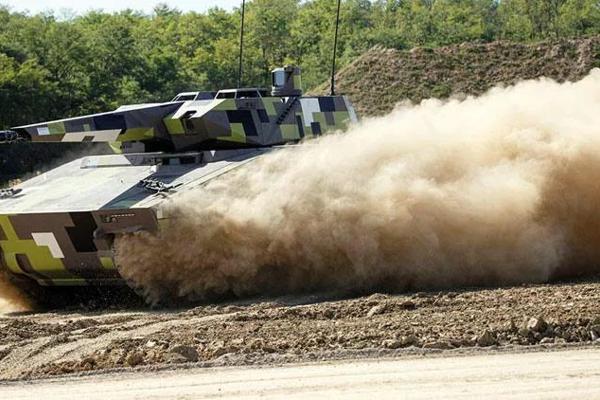Greece to make 4 billion euro deal with Germany
Yorgo Kırbaki- ATHENS


Greece is preparing to make a 4 billion euro deal for the modernization of tanks and four frigates with Germany.
Within the Greek government’s armament process initiated in the eastern Mediterranean after the crisis with Türkiye in 2020, Greece’s new address is Germany, after France and the U.S.
During German Chancellor Olaf Scholz’s visit to Greece’s capital Athens on Oct. 27, an armament program worth approximately 4 billion euros or a part of this program is expected to be announced.
According to Greek media, the armament program includes the purchase of 205 new Lynx KF-41 type armored combat vehicles, which will be produced in a factory to be established in Northern Greece.
The deal also will comprise the modernizations of 190 Leopard type 1, 183 Leopard type 2 tanks and four MEKO type frigates.
The modernization of a total of 337 Leopard tanks will cost 2 billion euros, while the purchase of 205 armored combat vehicles will be worth 1.4 billion euros.
The modernization of four frigates is worth 600 million euros.
After the 2020 crisis, Athens, which implemented its armament program, ordered 24 Rafale fighter jets worth $3.3 billion and three Belharra-type frigates worth $3 billion from France.
Greece’s contacts with the U.S. for the purchase of 20 F-35 fighter jets are ongoing.
Following the U.S. gave the green light during Greek Prime Minister Kyriakos Mitsotakis’ visit to Washington in May, the Greek Air Force sent “a letter of intent” in June and started the process for the purchase of 20 F-35s.
If the deal between Greece and the U.S. is completed, the F-35 fighter jets are expected to cost about $3 billion and their delivery will begin in 2028.
In June, Mitsotakis stated that despite strong rhetoric from Türkiye, relations are not at the low of 2020 when the neighbors’ warships were shadowing each other in the eastern Mediterranean.
The Greek Prime Minister Mitsotakis said he is always open to meeting Turkish President Recep Tayyip Erdoğan, as tensions between the two historical rivals mounted in September.
The two uneasy neighbors have for years feuded over maritime border and energy exploration rights in the disputed parts of the Aegean and in the eastern Mediterranean.
